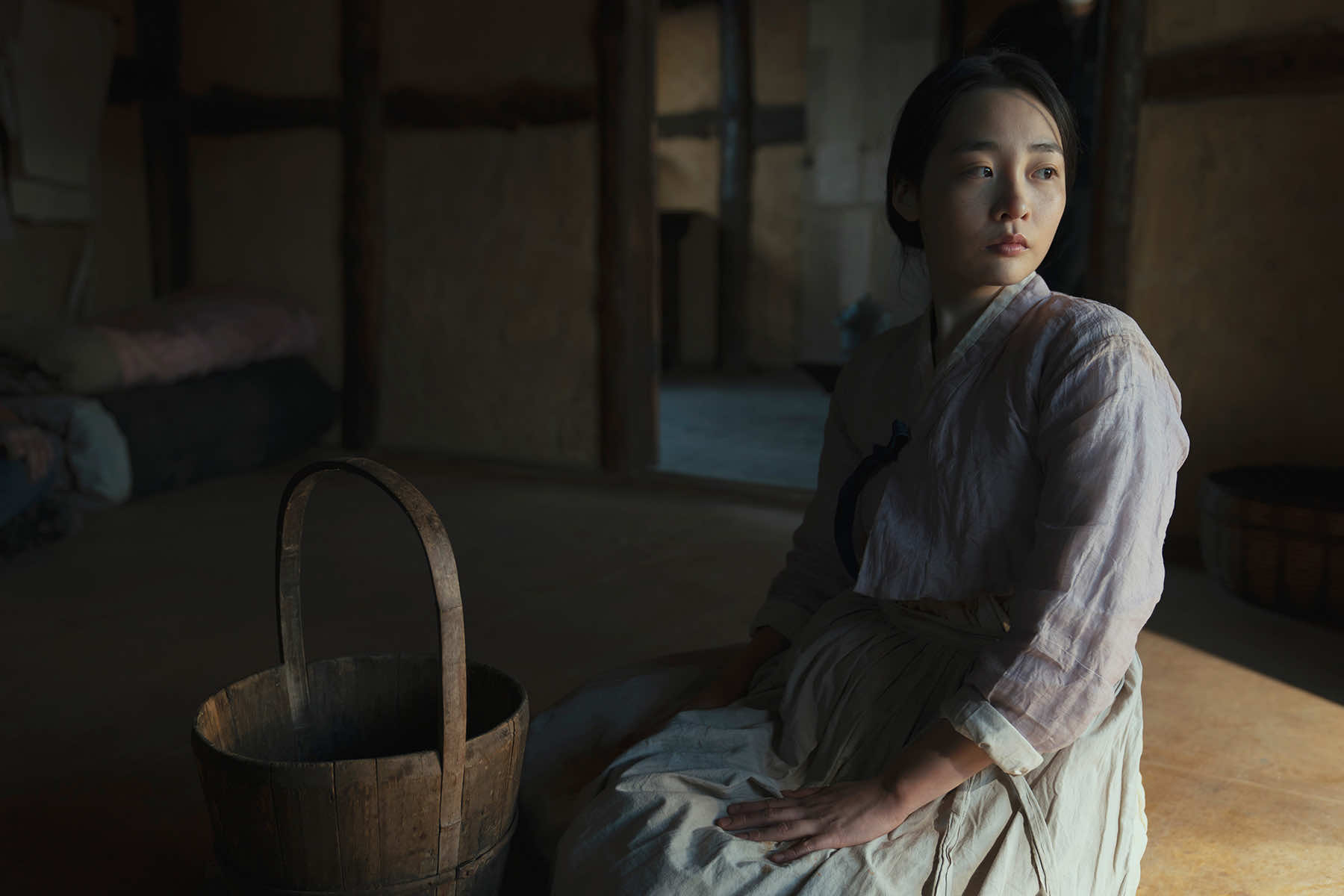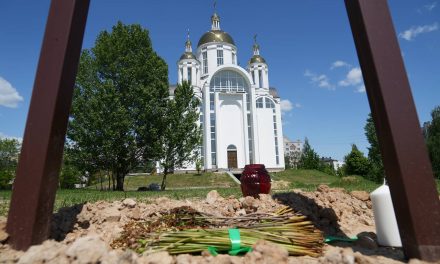
The award-winning Apple TV+ series “Pachinko” delicately captured the plight of ethnic Koreans brought to Japan during colonial rule and their descendants, exploring themes of home and identity through several generations.
The second season premiered 8 weekly episodes that began on August 23 and concluded with the finale on October 11. Based on “The New York Times” bestselling novel, “Pachinko” is a sweeping and deeply moving story of love and survival across four generations of an immigrant Korean family living in Japan since before World War II.
The star-studded cast includes Oscar-winning actor Youn Yuh-jung and Korean actor Lee Minho.
Many ethnic Koreans were brought to Japan, often forcibly, to work in mines and factories during the country’s 1910-1945 colonial rule of Korea. They were treated as second-class citizens and faced discrimination, which the series portrays.
Youn, who plays the older version of protagonist Sunja, said she was largely unfamiliar with the situation of ethnic Koreans in Japan — known as Zainichi Koreans — before she spoke with actor Soji Arai, who plays Mozasu, the son of her character. Arai was born into an ethnic Korean family in Japan.
“It broke my heart and I cried inside because I felt so bad after hearing about their stories,” said Youn.
In the series, ethnic Koreans face discrimination generation after generation. The second season continues Sunja’s story as she struggles to feed her sons Noa and Mozasu during the war. In one episode, a Japanese worker at a wartime Nagasaki factory refers to his Korean colleagues as “roaches” that “keep multiplying.”
Decades later, Sunja’s grandson Solomon nearly explodes at a Japanese store clerk whom he thinks is showing discrimination over his grandmother’s Korean heritage. He senses that discrimination will follow him even after attaining academic and professional credentials.
The series is told in three languages, Japanese, Korean, and English with subtitles and is based on Korean-American author Min Jin Lee’s novel, titled after a Japanese game played in arcades where ethnic Koreans often worked in jobs typically shunned by Japanese.
Youn said she portrayed Sunja as “intimidated, scared and feeling small,” believing discrimination is her fault due to endless exposure to it. Youn added that she has felt similarly in her own life, having an “inferiority complex” over her struggles with the English language.
Around half a million ethnic Koreans still live in Japan. Although many have become naturalized Japanese citizens, about half a million have not and are officially considered foreigners.
Executive producer and showrunner Soo Hugh said she was “nervous” about how the show would be received among Zainichi Koreans, but that she was happy to learn that it had resonated “really emotionally.”
“This is their story,” said Hugh, adding that she had to unlearn previous history education to understand “from the point of view of the people on the ground,” including those in Nagasaki.
When Youn was asked if she was concerned about playing a role in a series touching on sensitive parts of East Asian history, Youn said no. “We are talking about the past,” she said. “I am not a politician, so it doesn’t matter to me.”
Hugh said the series gradually transitions from the family’s day-to-day survival to answering big questions about their shifting identities: “What does it mean to live a good life … knowing that Japan is now my home?”
These are familiar questions to Hugh, who is Korean American.
“So many Korean immigrants come to America and think, ‘We’ll make a better life, but I’m not going to die in America because Korea is my home. … You know, a year goes by, then a year, another year, and then another year,” said Hugh. “It must feel really sad to know that you’re not going to die where you want to die. And that’s, I think, something so many of our characters confront in this show.”
Youn said that people will always carry their identity with them despite circumstances.
“I see many people who try their best to erase their Korean identity,” said Hugh. “I really don’t like that. There is no need to do that.”
When Apple TV+ unveiled the trailer for the second season of “Pachinko,” it garnered international attention for its brand-new cover of Coldplay’s “Viva La Vida” by Rosé. The global superstar of the record-breaking K-pop group BLACKPINK released a live studio cover of the song in 2022, but a new and more moving version was produced as an anthem for the trailer.
Rosé’s cover is also featured in the season two finale.
“I’ve always loved that song, especially the lyrics of that song, and I knew that I wanted it at the end of the season,” said Hugh.
But the showrunner felt the original version of Coldplay’s song did not fit, so she reviewed other covers. Then one of her producers recommended Rosé’s version.
We thought it was never going to happen, but Rosé jumped at the chance,” Hugh added. “The collaboration was just so beautiful and she was so supportive and easy to work with them really passionate.”
“Pachinko” season two is available on Apple TV+ platforms.
Related K-dramas
Other K-dramas currently streaming on Netflix that take place during the Japanese occupation of Korea include:
Mr. Sunshine (2018) – Set in the late 1800s to early 1900s, this drama focuses on the life of a Korean boy who escapes to the United States, only to return as an American soldier. As tensions rise with the impending Japanese occupation, the story delves into the struggles of the Korean people, including the independence movement. The series is known for its rich historical context and intense storytelling.
Gyeongseong Creature (2023) – Set in 1945, during the Japanese occupation of Korea, this series combines horror and historical drama. The story unfolds in Gyeongseong (the former name for Seoul) where a group of characters faces terrifying creatures as they navigate the oppressive atmosphere of the era. The show reflects the brutality of the occupation and incorporates elements of resistance.
Song of the Bandits (2023) – Taking place in the 1920s, this action-packed series is set in the lawless land of Gando, where a group of bandits fights against Japanese forces. The show portrays the resilience and resistance of Koreans during this tumultuous period, blending historical elements with thrilling action scenes.
Tale of the Nine-Tailed 1938 (2023) – A prequel to the 2020 series “Tale of the Nine-Tailed,” this show transports its main character, a gumiho (nine-tailed fox), back to 1938, amidst the Japanese occupation. The drama intertwines fantasy with historical elements, showcasing the challenges faced during this period.
Bridal Mask (2012) – Set in the 1930s during the Japanese occupation, this drama follows a Korean man who works for the Japanese police but secretly becomes a masked vigilante fighting for Korean independence. The show explores themes of patriotism, betrayal, and identity.
Chicago Typewriter (2017) – This drama alternates between the 1930s and the present day, focusing on three resistance fighters during the Japanese occupation. It combines elements of romance, mystery, and the supernatural.
Different Dreams (2019) – Set in the 1930s, this drama centers on a Korean doctor raised by Japanese foster parents, who becomes a spy for the Korean government-in-exile. The show captures the intense conflict and espionage activities during the occupation.
- Exploring Korea: Stories from Milwaukee to the DMZ and across a divided peninsula
- A pawn of history: How the Great Power struggle to control Korea set the stage for its civil war
- Names for Korea: The evolution of English words used for its identity from Gojoseon to Daehan Minguk
- SeonJoo So Oh: Living her dream of creating a "folded paper" bridge between Milwaukee and Korean culture
- A Cultural Bridge: Why Milwaukee needs to invest in a Museum that celebrates Korean art and history
- Korean diplomat joins Milwaukee's Korean American community in celebration of 79th Liberation Day
- John T. Chisholm: Standing guard along the volatile Korean DMZ at the end of the Cold War
- Most Dangerous Game: The golf course where U.S. soldiers play surrounded by North Korean snipers
- Triumph and Tragedy: How the 1988 Seoul Olympics became a battleground for Cold War politics
- Dan Odya: The challenges of serving at the Korean Demilitarized Zone during the Vietnam War
- The Korean Demilitarized Zone: A border between peace and war that also cuts across hearts and history
- The Korean DMZ Conflict: A forgotten "Second Chapter" of America's "Forgotten War"
- Dick Cavalco: A life shaped by service but also silence for 65 years about the Korean War
- Overshadowed by conflict: Why the Korean War still struggles for recognition and remembrance
- Wisconsin's Korean War Memorial stands as a timeless tribute to a generation of "forgotten" veterans
- Glenn Dohrmann: The extraordinary journey from an orphaned farm boy to a highly decorated hero
- The fight for Hill 266: Glenn Dohrmann recalls one of the Korean War's most fierce battles
- Frozen in time: Rare photos from a side of the Korean War that most families in Milwaukee never saw
- Jessica Boling: The emotional journey from an American adoption to reclaiming her Korean identity
- A deportation story: When South Korea was forced to confront its adoption industry's history of abuse
- South Korea faces severe population decline amid growing burdens on marriage and parenthood
- Emma Daisy Gertel: Why finding comfort with the "in-between space" as a Korean adoptee is a superpower
- The Soul of Seoul: A photographic look at the dynamic streets and urban layers of a megacity
- The Creation of Hangul: A linguistic masterpiece designed by King Sejong to increase Korean literacy
- Rick Wood: Veteran Milwaukee photojournalist reflects on his rare trip to reclusive North Korea
- Dynastic Rule: Personality cult of Kim Jong Un expands as North Koreans wear his pins to show total loyalty
- South Korea formalizes nuclear deterrent strategy with U.S. as North Korea aims to boost atomic arsenal
- Tea with Jin: A rare conversation with a North Korean defector living a happier life in Seoul
- Journalism and Statecraft: Why it is complicated for foreign press to interview a North Korean defector
- Inside North Korea’s Isolation: A decade of images show rare views of life around Pyongyang
- Karyn Althoff Roelke: How Honor Flights remind Korean War veterans that they are not forgotten
- Letters from North Korea: How Milwaukee County Historical Society preserves stories from war veterans
- A Cold War Secret: Graves discovered of Russian pilots who flew MiG jets for North Korea during Korean War
- Heechang Kang: How a Korean American pastor balances tradition and integration at church
- Faith and Heritage: A Pew Research Center's perspective on Korean American Christians in Milwaukee
- Landmark legal verdict by South Korea's top court opens the door to some rights for same-sex couples
- Kenny Yoo: How the adversities of dyslexia and the war in Afghanistan fueled his success as a photojournalist
- Walking between two worlds: The complex dynamics of code-switching among Korean Americans
- A look back at Kamala Harris in South Korea as U.S. looks ahead to more provocations by North Korea
- Jason S. Yi: Feeling at peace with the duality of being both an American and a Korean in Milwaukee
- The Zainichi experience: Second season of “Pachinko” examines the hardships of ethnic Koreans in Japan
- Shadows of History: South Korea's lingering struggle for justice over "Comfort Women"
- Christopher Michael Doll: An unexpected life in South Korea and its cross-cultural intersections
- Korea in 1895: How UW-Milwaukee's AGSL protects the historic treasures of Kim Jeong-ho and George C. Foulk
- "Ink. Brush. Paper." Exhibit: Korean Sumukhwa art highlights women’s empowerment in Milwaukee
- Christopher Wing: The cultural bonds between Milwaukee and Changwon built by brewing beer
- Halloween Crowd Crush: A solemn remembrance of the Itaewon tragedy after two years of mourning
- Forgotten Victims: How panic and paranoia led to a massacre of refugees at the No Gun Ri Bridge
- Kyoung Ae Cho: How embracing Korean heritage and uniting cultures started with her own name
- Complexities of Identity: When being from North Korea does not mean being North Korean
- A fragile peace: Tensions simmer at DMZ as North Korean soldiers cross into the South multiple times
- Byung-Il Choi: A lifelong dedication to medicine began with the kindness of U.S. soldiers to a child of war
- Restoring Harmony: South Korea's long search to reclaim its identity from Japanese occupation
- Sado gold mine gains UNESCO status after Tokyo pledges to exhibit WWII trauma of Korean laborers
- The Heartbeat of K-Pop: How Tina Melk's passion for Korean music inspired a utopia for others to share
- K-pop Revolution: The Korean cultural phenomenon that captivated a growing audience in Milwaukee
- Artifacts from BTS and LE SSERAFIM featured at Grammy Museum exhibit put K-pop fashion in the spotlight
- Hyunjoo Han: The unconventional path from a Korean village to Milwaukee’s multicultural landscape
- The Battle of Restraint: How nuclear weapons almost redefined warfare on the Korean peninsula
- Rejection of peace: Why North Korea's increasing hostility to the South was inevitable
- WonWoo Chung: Navigating life, faith, and identity between cultures in Milwaukee and Seoul
- Korean Landmarks: A visual tour of heritage sites from the Silla and Joseon Dynasties
- South Korea’s Digital Nomad Visa offers a global gateway for Milwaukee’s young professionals
- Forgotten Gando: Why the autonomous Korean territory within China remains a footnote in history
- A game of maps: How China prepared to steal Korean history to prevent reunification
- From Taiwan to Korea: When Mao Zedong shifted China’s priority amid Soviet and American pressures
- Hoyoon Min: Putting his future on hold in Milwaukee to serve in his homeland's military
- A long journey home: Robert P. Raess laid to rest in Wisconsin after being MIA in Korean War for 70 years
- Existential threats: A cost of living in Seoul comes with being in range of North Korea's artillery
- Jinseon Kim: A Seoulite's creative adventure recording the city’s legacy and allure through art
- A subway journey: Exploring Euljiro in illustrations and by foot on Line 2 with artist Jinseon Kim
- Seoul Searching: Revisiting the first film to explore the experiences of Korean adoptees and diaspora



























































